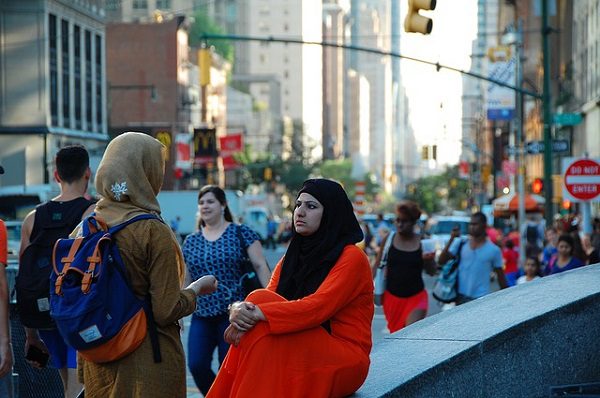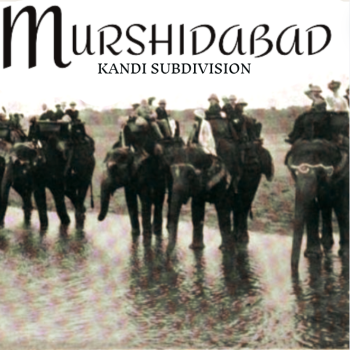Coming back home to United States from a trip abroad, I was jolted back to the guarded alertness that Muslim women wearing hijab encounter every day in America. I noticed the heads turning so slightly towards me with a suspicious look, then turning away. For Muslim American women this is often what coming home feels like. I was home.
A few days later, when a feminist friend of mine challenged my hijab as a symbol of suppression, I felt that it was my duty to write about the freedom Muslim women were granted more than 1400 years ago when Islam started the original women’s liberation movement.
Women’s liberation is defined as a movement to combat sexual discrimination and to gain full legal, economic, vocational, educational and social rights and opportunities for women, equal to those of men. The women’s liberation movement started by Islam transformed women’s lives from degrading slavery and submission to enlightenment and empowerment. I will try to give you a glimpse of this transformation through the filter of a few basic rights.
The Right to be Born and Raised with Dignity
Before Islam, female infanticide was a widespread practice in Arab tribes. Infant girls were buried alive due to the shame and social stigma attached to them. Then Islam was brought to the lands. In Holy Quran, chapter 16, verse 59-60, God says,
“And when to one of them is conveyed the tidings of the birth of a female, his face darkens with inward suppressed grief; he hides himself from the people because of the bad news he has had. Shall he keep it in in spite of disgrace or shall he burry it in the dust? Verily, evil is that which they judge.”
Islam not only abolished this abhorring practice, but through the example of the Prophet Muhammad (peace and blessings be on him), revolutionized the attitudes and practices towards girls. Prophet Muhammad was blessed with four daughters, and he raised them with respect, kindness and compassion. He not only educated them but imparted a deep sense of wisdom, determination, generosity and benevolence, making them responsible adults.
He said, “He who brings up his daughters well, and makes no distinction between them and his sons, will be close to me in Paradise.”
The Right to Education
Before Islam very few girls had the right or opportunity to be educated. Without knowledge there was no hope for enlightenment, which served the patriarchal society perfectly. Islam brought the commandment that pursuit of knowledge is a duty of every Muslim man and woman. Prophet Muhammad encouraged his wives to seek knowledge; he once stated that “half the religion of Islam could be learned from Aisha (his wife).” After his death, she became the source of knowledge for the entire Muslim community. Today, when Malala Yousafzai is fighting for girl’s education, she is not taking a stand against the Islamic teachings but exercising the right to education given to her 1400 years ago by Islam and Prophet Muhammad.
The Right to a Happy Marriage
Before Islam women had no right to choose their spouses. They were transferred from man to man as property, sometimes, as widows, even to their step sons. Islam gave women the right to choose their husbands and even send the proposal of marriage. Muslim women enter marriage with the monetary protection of dowry (mehr), which is mandatory for husbands to provide, and with a balanced set of rights and responsibilities. The Quran describes husband and wife as garments for each other and gives the recipe for a happy marriage based on love and respect.
In an Islamic social fabric, a harmonious marital life is of such significance that Holy Quran teaches Muslims a special prayer: “Lord, grant us of our spouses and our children the delight of our eyes and make us a model for the righteous” (25:75).
The Right to Divorce
During the pre-Islamic period, women in Arabia had no recourse to get out of an abusive marital relationship, as they had no right to seek a divorce. Although Islam describes divorce as a most undesirable option for both husband and wife, it allows a path for women to leave an unsuccessful marriage.
Islam has prescribed a very elaborate process of divorce, whether it is initiated by husband or wife. The process has multiple phases and spans multiple months to protect the rights of women and to keep the door of reconciliation open for as long as possible.
The Right to Earn, Own, Inherit Property
Before Islam, women generally had no right to own property or inherit it from their husbands or parents. There are exceptions, such as Khadija, who was a successful business woman and later became the beloved wife of Prophet Muhammad. Islam empowered women by allowing them to earn, acquire, manage and inherit property.
Any property that a woman might acquire by her own effort or might inherit or receive as a gift belongs to her only. She may ask her husband to manage it, but if she decides to take care of it herself, he cannot interfere in how or where she spends her money. She can give away all her money in charity if she likes.
Today, many working Muslim women do contribute a portion or the whole of their earnings towards household expenses, but they are under no obligation to do so. The upkeep of the household is the entire responsibility of the husband, even if the wife is in her own right financially better off than him. Any money they spend on household or their husbands is considered charity.
Islam was the first religion that gave women the right of inheritance. The Quran makes daughters, along with sons, heirs to the property left by their parents. In the same way, a mother is made an heir to her son’s or daughter’s property and a wife is made an heir to her husband’s property. When a brother becomes an heir of his deceased brother’s property, a sister is also an heir to that property.
The Right of Spiritual Equality
Islam gave the message of spiritual equality by proclaiming that in the eyes of God, men and women are not different and will be judged and awarded equally by God. Woman’s spiritual equality with man is repeatedly stressed in the Holy Quran. For instance, it is said:
“For men who submit themselves wholly to Allah, and women who submit themselves wholly to Him and men who believe and women who believe, and men who obey Allah and women who obey Him, and men who are truthful and women who are truthful, and men who are steadfast and women who are steadfast, and men who are humble and women who are humble, and men who give alms and women who give alms, and men who fast and women who fast, and men who guard their chastity and women who guard their chastity, and men who remember Allah much and women who remember Him, Allah has prepared forgiveness and a great reward” (33:36).
In Holy Quran, chapter 4, verse 125, God says: “Whoso does good whether male or female, and is a believer, shall enter Paradise and they shall not be wronged a whit.”
In conclusion, Islam raised the status of women in every role she holds. The religion reminds mothers of their elevated status by saying, “Paradise lies under the feet of mothers.” Then it reminds fathers of their duty towards daughters by saying, “If a man has daughters and he arranges to have them educated and take pains with their upbringing, God will save him from the torment of Hell.”
Today, many Muslim women who chose to wear hijab do so with humility and pride as a symbol of the liberation and dignified status granted to them by Islam, not as a sign of suppression. It is only through knowledge and information that we can shatter stereotypes and bring about enlightenment.
Aziza Faruqi is the president of the Austin chapter of the Ahmadiyya Muslim Women Association and a computer architect by profession. She writes for the media watch team of the Women’s Auxiliary of the Ahmadiyya Muslim Community in the U.S.

















